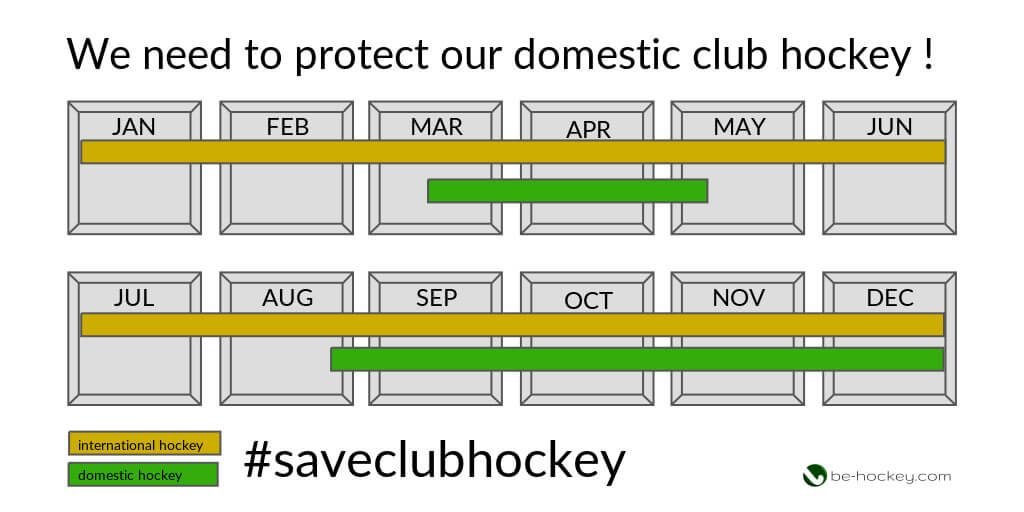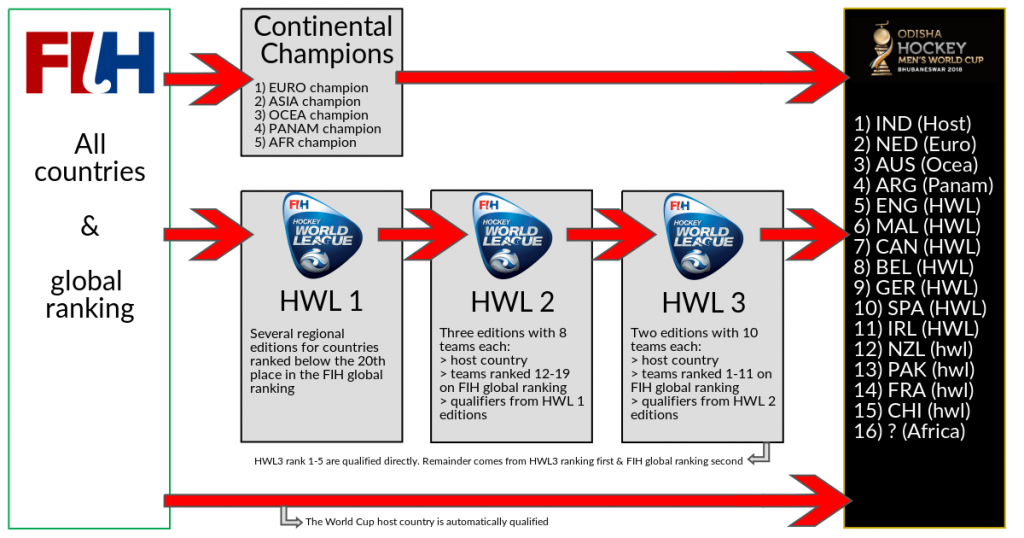 The HPL or Hockey Pro League will undoubtedly have its effect on the calendar for domestic leagues or as we call this in Europe “club hockey”. But with some common sense and good will we can get a long way. The following set-up would seem the most logical choice according to me:
The HPL or Hockey Pro League will undoubtedly have its effect on the calendar for domestic leagues or as we call this in Europe “club hockey”. But with some common sense and good will we can get a long way. The following set-up would seem the most logical choice according to me:
- week 1-10 : January to mid March are reserved for national teams to schedule their camps, HPL games & HWL games with a focus on the games to be played in the southern hemisphere.
- week 11-18 : Mid March to the end of April are booked for club hockey with domestic leagues (regular competition and play off) and EHL finals during Easter
- week 19-26 : From May to the end of June the focus is back on the national team for their camps, HPL games & HWL games with a focus on the games to be played in the northern hemisphere.
- week 27-28 : Reserved for rest & recuperation
- week 29-34 : Back to the national teams for their camps and continental championships, world cups or Olympics
- week 35-36 : Reserved for rest & recuperation.
- week 37-48 : From September to the end of November all eyes are back on club hockey for domestic leagues and a preliminary round of EHL
- week 49-52: December is reserved for rest & recuperation.
Meaning top players involved in club hockey and national teams would spend 24 weeks with a focus on their national team, 20 weeks focussed on their clubs and would get more or less 8 weeks of recuperation time every year. Obviously there would be some spill over with national team games to be played during club weeks but if these are games with minimal travel some midweek games would not upset the club league too much. But if important international games (qualification games) or games needing too much travel time are planned by the FIH in this time of year set aside for club hockey, we are in big trouble!
Yes, this means less time for our traditional club competition, but we would be left with something to work with in this scenario. Add a couple of double weekends in the mix during their 20 weeks and our beloved competition would hardly have to change. Plus if national federations and clubs get creative I’m sure they can think of some fun & useful formula’s of competition or tournaments they can play without their international players in those weeks where national teams are travelling the world. But we need that protected window of time on the international calendar!
One of the biggest changes we will not be able to escape in our European club scene would be the one with less international players from countries such as Australia, New Zealand, Argentina or Pakistan. Because it would become almost impossible to match their national team program with the demands of our domestic leagues. I know a lot of hockey fans already would prefer less foreigners in our domestic leagues, so they will be happy. I think it will lower the standards of the top leagues such as the Hoofdklasse or the Belgian Honour Division which is a shame, but I honestly do not see a solution for this.
Anyway… this was just me thinking out loud before final decisions are communicated by FIH and national federations. So, I’m as curious as the rest of you of what will become of our traditional European club hockey once the HPL gets underway… but I’m sure we’ll know more soon 😉 And before all of this will happen in 2019, we still have a lot of domestic and international hockey coming up with EHL & HWL finals, the last Champions Trophy and last but not least a World Cup in India !
Speaking of which… the roster of the next World Cup is almost known. India just became Asian champions barring the way for Korea to the world cup stage. And at this very moment the last continental championship is being played in Egypt where the African champion, most likely either South Africa or Egypt will take the final spot for Odisha in december 2018. Meaning we will see 7 European nations, 4 Asian, 2 from Oceania, 2 Pan-American countries and 1 African country on that world cup stage. According to me this means the qualification process got it right since this is more or less the way the stronger nations are divided all over the world.



